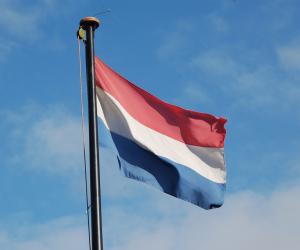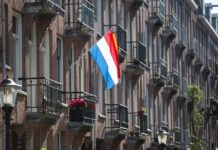 René Jansen, chairman of Dutch gambling regulator the Kansspelautoriteit (KSA), has called for operators considering applying for licences for the country’s new legal market to be responsible with their activities, saying that the regulator will adopt a “strict but fair” oversight of the sector.
René Jansen, chairman of Dutch gambling regulator the Kansspelautoriteit (KSA), has called for operators considering applying for licences for the country’s new legal market to be responsible with their activities, saying that the regulator will adopt a “strict but fair” oversight of the sector.
The country’s regulated online gambling market is scheduled to open on 1 July 2021, with the KSA to open the licensing process on 1 January 2021.
In November last year, the regulator published information about the new online gambling licences, but Jansen has reached out the sector to urge those preparing to apply for a permit to operate in the country to ensure they have appropriate responsible gambling measures in place.
“Legislators in our country should not be forced to take action to put in place additional measures or measures to restore the status quo,” Jansen said in a speech at the Annual Gaming Industry Event in Amsterdam. “The focus of our contribution as national regulator is to provide strict but fair oversight.
“But we also consider it our task to give guidance to the market if necessary. We will – as far as possible – certainly not confine ourselves to telling operators what they shouldn’t do. After the opening of the online market, it’s important that we not lose sight of the objective of the Remote Gambling Act: to achieve channelling of 80% within three years.”
Jansen revealed that part of the KSA’s own approach to responsible gaming will include a ‘Central Exclusion Register’, which will operate under the name ‘Cruks’.
This register will become active from 1 January next year, allowing players to exclude themselves from gambling with licensed operators in the Netherlands. Operators must first refer to the list before allowing players to open an account on their platform.
Jansen said that while the KSA will develop the register, the regulator will open it up to public tender for an external party to operate. The KSA expects to confirm the successful applicant by May 2021, while technical tests on the register will begin with land-based operators later this year.
In addition, Jansen said that despite the focus on regulation, KSA will continue its efforts to clamp down on illegal activities in the country. Last year, the regulator imposed fines worth a combined €3.5m (£3.0m/$3.9m) in 2019, a 105.8% rise from 2018.
“I have previously warned that the licensing procedure should not be taken lightly, and I repeat that warning today,” Jansen said. “As you all know, gambling is a controversial subject in the Netherlands. In fact, I would say that it is more controversial in the Netherlands than in many other countries, based on impressions from talking to fellow regulators and other stakeholders abroad.
“There’s a good reason that it has taken so long for government and Parliament to legalise online gambling. A number of groups in politics and society object to gambling. The likely result is that, as the online market becomes more open, every aspect will be subject to critical scrutiny, from advertising, to addiction prevention to the participation of minors.
“This critical gaze will be focused on both operators and the KSA. Is the regulator playing a sufficiently active role: is it keeping its eye on the ball? Are licences being issued appropriately? Is the regulator cracking down on the remaining illegal operators?
“For the KSA, besides giving operators sufficient space, we also need to crack down on the remaining illegal supply. I can promise you that we will take this task seriously.
“’Responsible gambling’ must not be merely a PR slogan for operators; it ought to be part of the corporate DNA of all gambling and betting operators, both online and land based. It seems to me that that’s the real spirit and key message of our new Dutch gambling act.”











